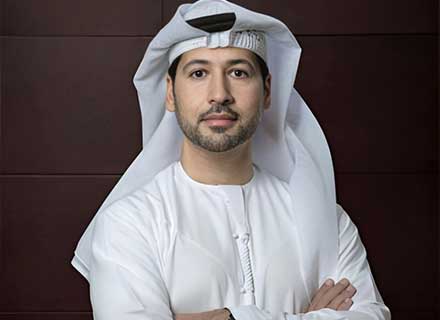The Dubai International Financial Centre (DIFC) is a special economic zone in Dubai that was established in 2004 as a financial hub for businesses operating throughout the Middle East, Africa, and South Asia (MEASA) markets.
The DIFC is regulated by the Dubai Financial Services Authority, an independent regulator exclusive to the zone, and by its own court system, DIFC Courts, separate from the Emirate of Dubai’s legal system and that of the federal government of the UAE.
DIFC, an independent free zone in Dubai, provides businesses with 100% ownership without the need for a local partner. In addition to financial institutions, wealth funds, and space designated for hotels and retail, the free zone also houses these entities.
In addition to the UAE’s extensive network of double taxation agreements, DIFC provides clients with a 50-year guarantee of zero taxes on corporate revenue and profits.
According to the reports, the number of non-financial enterprises in DIFC rose by 19% annually in 2022, thus increasing the total number of foreign corporations, family businesses, and corporate service providers to over 3,000.
Recently, according to the Government of Dubai Media Office, the DIFC announced the introduction of a metaverse platform, under the ‘Dubai Metaverse Strategy’.
The forum will be held for six months, during which time companies will be given access to training, workshops, and networking opportunities. The focus of the platform will be on policy formation, legal frameworks, and digital identities. It will also reportedly contain a physical studio.
The DIFC has three hotels, the Ritz-Carlton, the Waldorf Astoria and Four Seasons. It is also home to several art galleries. The centre has more than 100 cafes and eateries, including national and international chains serving a wide range of cuisines. Many retail businesses, petrol stations and business service providers can be found inside the DIFC complex.
The brain behind this successful special economic zone is Arif Amiri, CEO of Dubai International Financial Center.
-
Who is Arif Amiri?
- Arif Amiri was born and brought up in Dubai, United Arab Emirates
- He completed his bachelor’s in aviation business administration from the Embry-Riddle Aeronautical University in Florida and master’s in organization behaviour and marketing strategy from the University of Cambridge
- Arif Amiri began his career by joining HSBC Bank Middle East, where he was responsible for the implementation of a number of corporate and institutional banking initiatives
- He then joined Emaar Properties, where he drove the all-round commercial operations of the company and grew their portfolio significantly throughout his tenure
- From 2008 to 2011, Arif Amiri was the Chairman of the Middle East Investor Relations Society
- He joined DIFC in 2014 as Deputy CEO and after a year became CEO of the company
- Arif Amiri received the Honorary Award at the Retail City Awards in 2011, and the Retail Leadership Award at the 2012 Asian Leadership awards
- In 2017, he announced DIFC’s initiatives to accelerate the growth of financial technology in the MEASA region
- In 2020, Arif Amiri announced the launch of a start-up accelerator program for fintech start-ups in Africa
- According to DowhNet, as of January 2023, Arif Amiri’s net worth is around USD 1.2 Billion
‘Courage is the first quality one needs to develop’
In an interview with Tharawat Magazine, Arif Amiri shares the story of his unique journey and offers valuable insights for the next generation of leaders. He also noted some challenges that generations of leaders face today.
“The advancements in technology and knowledge have led to an unprecedented increase in career options for the next generation. Sometimes these options can seem intimidating. Some might find it difficult to figure out what they want to do in this next-generation economy, or they might feel pressured to follow the path that is most ‘acceptable.’ I also sense fear or hesitation in many with regard to taking that next step in their lives or careers because they have settled into a comfortable routine,” he commented.
“This is the reason why I believe courage is the first quality one needs to develop. It is an ability that helps challenge the definition of success in a time when there are a myriad of different walks of life to choose from,” he added further.

